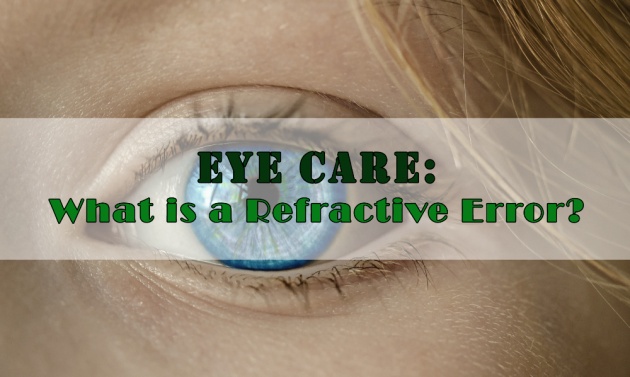
Image Credit: cocoparisienne via Pixabay / Edied with Photoshop
I've always had a problem with my eyes since I was little--perhaps it was even inborn. I've been wearing glasses ever since I could remember--but I wasn't too keen on wearing them when I was little. My parents were also too busy making a living that they weren't able to make sure that I wear my glasses properly. And now, I guess you can say that I regret not taking better care of my eyes. If I had, maybe I would have been cured by now or at least have better eyesight. That's why I want to talk about eyesight problems to raise awareness that we should not neglect the health of our eyes. Let's start with the most common cause of vision problems: refractive errors.
✧ What is a Refractive Error? ✧
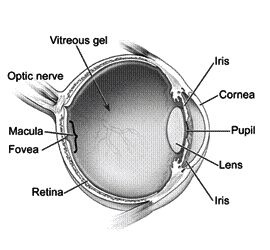
Image Credit: https://nei.nih.gov/
Refractive errors, such as nearsightedness, farsightedness, astigmatism, and presbyopia, are the most common causes of vision problems. They occur when light does not focus directly on the retina because of the irregular shape of the cornea which leads to blurred vision. More severe cases may even cause visual impairment. A person can suffer from one or more of these refractive errors at the same time. For example, I am nearsighted and, at the same time, have astigmatism.
✧ What is Refraction? ✧
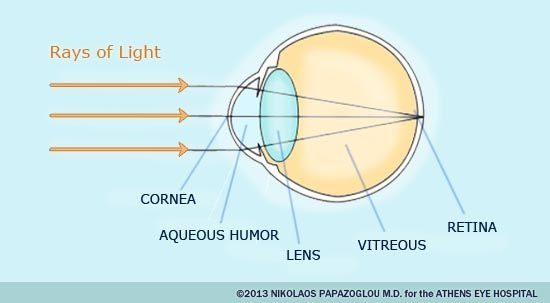
Image Credit: http://www.athenseyehospital.gr/
Light rays are bent when they pass through the lens and cornea of the eyes and then they get focused on the retina. The retina will then convert the light rays into messages and then sent to the brain's optic nerves. The brain will then translate these messages into the images we see--and this is how we can see. So in a nutshell, refraction is described as the bending of light as it passes through from one object to another.
✧ Type of Refractive Errors ✧
The four most common types of refractive errors are the following:
✧ Nearsightedness (myopia)
Myopia is a condition where objects from far away appear blurry while near objects appear clearly. This type of refractive error occurs because the light is supposed to focus on the retina itself, but it focuses in front of the retina instead.
✧ Farsightedness (hyperopia)
Hyperopia is the direct opposite of myopia. If far away things appear blurry for people with myopia, those suffering from hyperopia see far away objects clearly but objects that are up close appear blurry. However, not all people with hyperopia experiences the same symptoms. Some don't even notice that they have vision problems, especially the younger ones, while some with a more extreme case find it difficult to see objects whether near or far.
✧ Astigmatism
This type of refractive error prevents the eye from focusing light evenly on the retina. This condition often causes images to appear stretched out and blurry.
✧ Presbyopia
Presbyopia is an eye condition directly related to aging. Just like any organ of the body, the eyes also suffer from wear and tear due to aging. As we age, the lenses of our eyes lose their ability to change shape in order to focus on nearby objects.
✧ Symptoms ✧
Blurred vision is the most common and obvious symptom of a refractive error. However, you may also experience double vision, haziness, squinting, eye strain, and headaches. Additionally, you may notice some glare or halos around bright lights.
✧ Risk Factors ✧
It doesn't matter if you're young or old, anyone can develop refractive errors. Individuals with parents who have one or more refractive error are more likely to develop one. In fact, some--like me--are even born with it. However, there are some refractive errors, such as presbyopia, that only affect adults who are over 35 years of age.
✧ Diagnosis and Treatment ✧
An eye care specialist can diagnose refractive errors with the use of several testing methods such as
- Visual acuity
- Refraction
- Comprehensive eye exam
Treatments may differ from one type of refractive error to another. Some of the most common treatments are the following:
✧ Eyeglasses
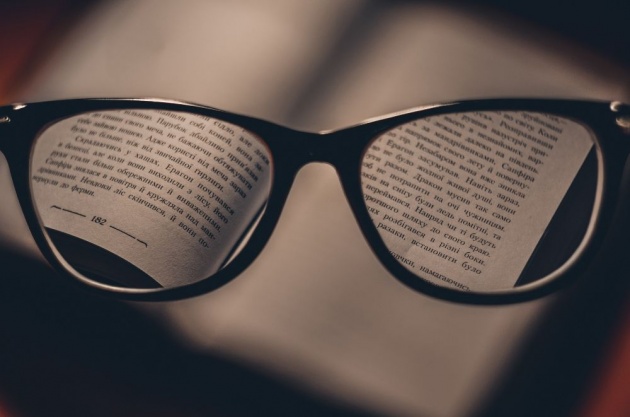
Imge Credit: Free-Photos via Pixabay
The safest and simplest way to correct refractive errors is through the use of eyeglasses. Your eye care specialist will help you find the perfect pair of glasses in order to give you optimal vision.
✧ Contact lenses
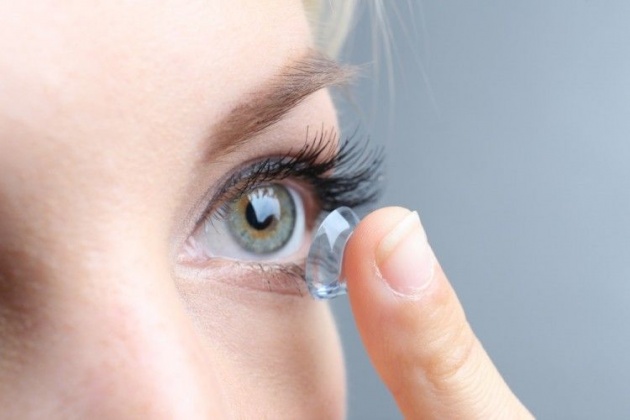
Image Credit: https://www.longevitylive.com/
If you don't like to wear glasses, contact lenses offer a safe and effective alternative--as long as used properly. They can also give you a more precise focus or refraction. This is because they are the first refractive surface that light comes into contact with when entering the eyes. In most cases, contact lenses provide a wider range of vision and a clearer vision than eyeglasses. Additionally, it provides greater comfort. However, do make sure to wash your hands and properly clean the lenses before wearing them to avoid developing an eye infection.
One last thing. If you have any pre-existing eye conditions, it may not be possible to wear contact lenses. Talk to your eye doctor to further discuss this issue for better understanding.
✧ Refractive surgery
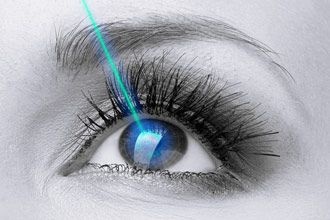
Image Credit: https://www.allaboutvision.com/
If all else fails, then a refractive surgery may no longer be avoided. This type of surgery will permanently change the shape of the cornea to restore the eye's focusing power as it will allow light to focus exactly on the retina for better vision. However, you should understand that there are different kinds of refractive surgeries and not all of them will suit your case. Your eye doctor will be able to help explain your options to you in more detail.
Let's follow Alexa Ilacad's LASIK Eye Surgery Experience at Shinagawa.
Video Credit: Alexa Ilacad via Youtube
✧ Final Thoughts ✧
Refractive errors are the most common cause of many vision problems. Some people are born with it while some develop one as they age. So, for most of us, this cannot be avoided. However, these conditions can still be corrected through the use of eyeglasses or contact lenses. If you want a more permanent solution, then a refractive surgery is another option for you. Consult with an experienced eye care professional for expert advice regarding this.
~oO0Oo~~oO0Oo~~oO0Oo~~
Thanks for reading! Have a wonderful day ahead of you and keep smiling. :)
Written by Chineyes for bitLanders
For more quality blog posts, you may visit my page
Not yet on bitLanders? Sign up now and be rewarded for sharing ideas, photos, and videos!



